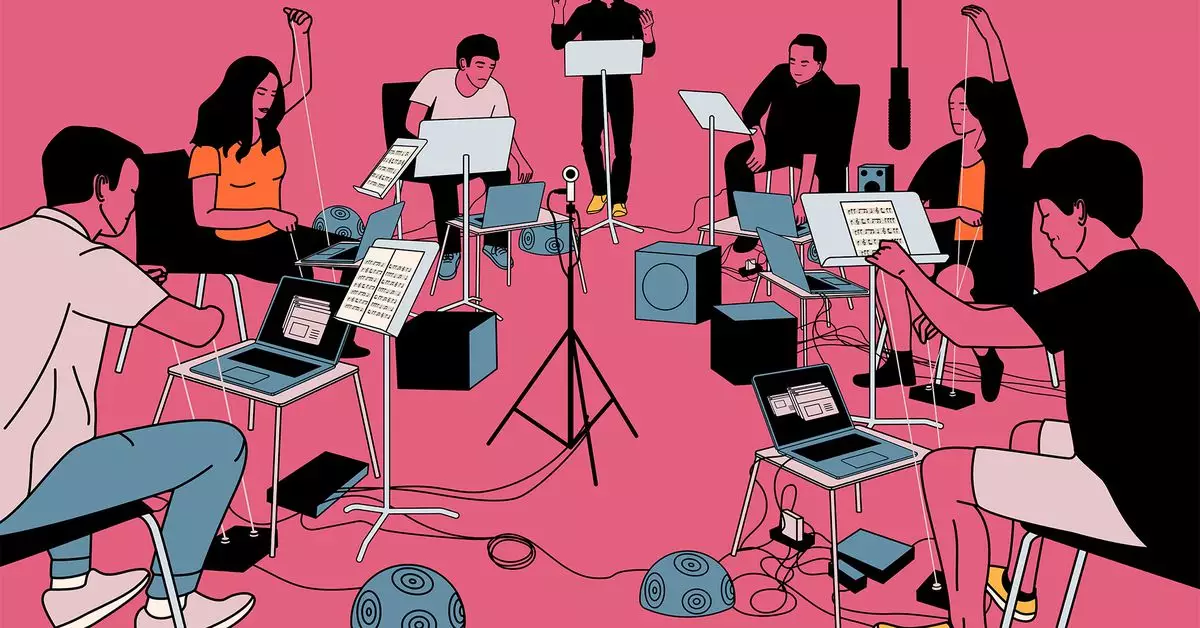In today’s fast-paced digital landscape, the essence of music creation is being redefined by pioneers like Ge Wang. As an associate professor at Stanford’s Center for Computer Research in Music and Acoustics, Wang exemplifies the intersection of technology and artistic expression. Unlike traditional musicians who utilize conventional instruments, Wang seeks to use computers not merely as tools but as an inherent part of the musical process. This distinction highlights a significant shift in how we perceive music creation—an amalgamation of human creativity and technological prowess.
Wang emphasizes the importance of teaching students to engage with technology playfully rather than aiming for mastery. This educational philosophy is crucial as it nurtures a generation of musicians comfortable with experimenting and innovating rather than adhering rigidly to established norms. In a field where technology is evolving rapidly, this exploratory approach is vital. It encourages creativity that can flourish amidst the predictable nature of algorithm-driven music composition.
As Artificial Intelligence continues to permeate various aspects of life, its implications for music are both exciting and daunting. The advent of AI in music production raises critical questions about originality and the essence of human creativity. Wang’s insights provoke thoughtful discussions on how developers should navigate this new territory. Are efficiency and convenience the ultimate goals, or should we strive to retain the authentic struggles that often lead to artistic breakthroughs? Recognizing this tension is essential for future tool developers who aim to create technologies that genuinely enhance the creative process while respecting the fundamental human experience of creating art.
The discussion often veers into the philosophical realm—what is the role of humans in a world increasingly dominated by technology? This conversation is particularly salient in the context of music, where the very act of creation is deeply personal and subjective. In striving for clarity and efficiency with tools designed for artistic expression, we risk sidelining the rich, nuanced experiences that define what it means to be human. Wang’s approach challenges us to consider whether the convenience of these tools diminishes the quality of the creative journey itself.
In the latest episode of The Vergecast, Wang’s insights pave the way for a more profound exploration of music’s future in the context of rapid technological change. While embracing innovation, it is also essential to engage in reflective practices that consider the implications of our increasingly automated environment. The conversation resonates deeply with anyone involved in creative pursuits, encouraging us to reassess our motivations, the tools we use, and the fundamental essence of what it means to create. By blending technology and artistry thoughtfully, we can explore new frontiers while honoring the human experience that underpins it all.


Leave a Reply
You must be logged in to post a comment.